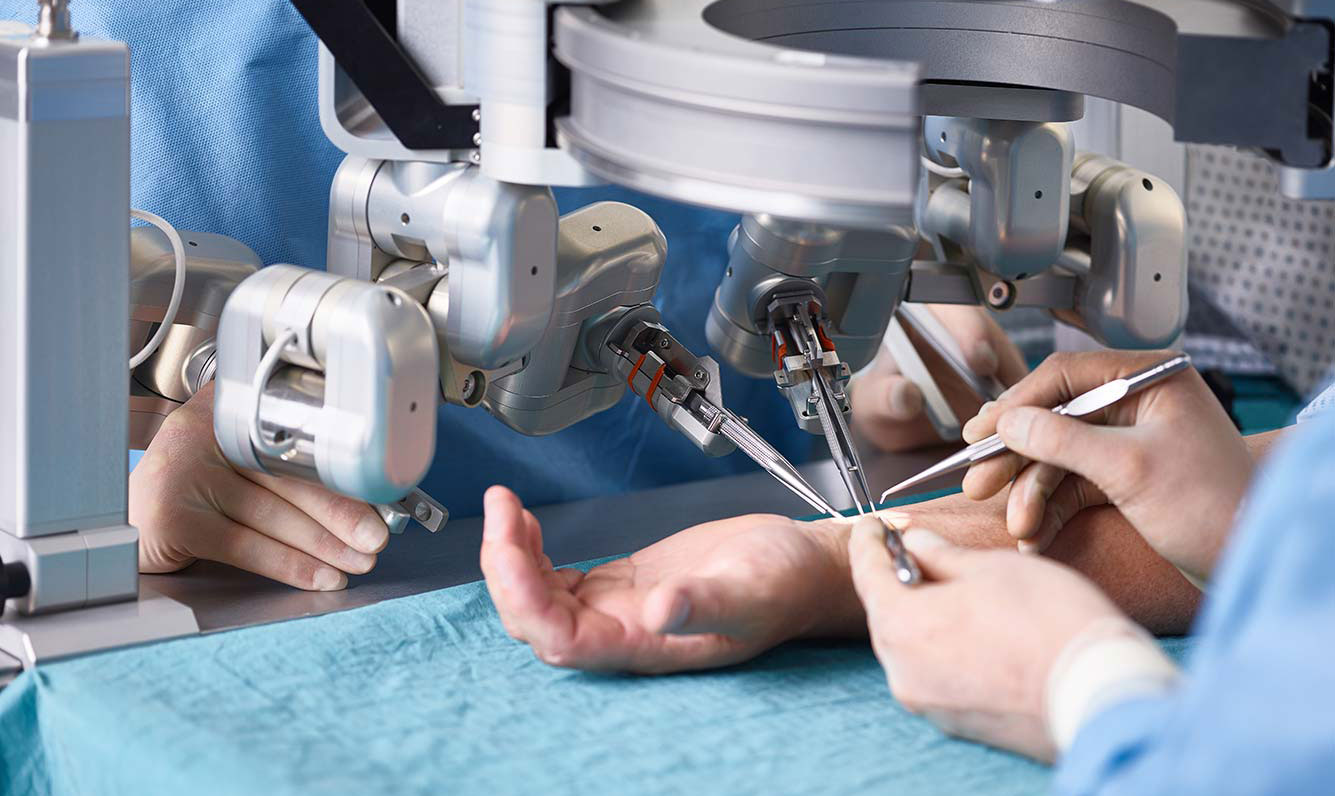
AI Revolutionizes Healthcare with Precision Medicine and Robot-Assisted SurgeryAI Revolutionizes Healthcare with Precision Medicine and Robot-Assisted Surgery Artificial intelligence (AI) is transforming healthcare, heralding an era of unprecedented precision and efficiency. Two key areas where AI is making a profound impact are precision medicine and robot-assisted surgery. Precision Medicine Precision medicine tailors medical treatments to an individual’s unique genetics and health profile. By analyzing vast amounts of genomic data, AI algorithms can: * Identify genetic predispositions to diseases * Predict the likelihood of treatment success * Develop personalized dosage plans * Tailor therapies based on patient responses This level of precision enables early diagnosis, more effective treatments, and reduced side effects. For example, AI-powered genetic sequencing can pinpoint cancer mutations that guide treatment decisions, improving patient outcomes. Robot-Assisted Surgery Robot-assisted surgery uses highly precise robotic arms controlled by surgeons. With AI integration, these systems offer: * Enhanced dexterity and accuracy * Reduced incision sizes and recovery times * Minimized tremors and human error * 3D visualization and guidance AI-guided robotic surgery provides: * Safer and more precise procedures * Reduced patient complications * Improved cosmetic outcomes * Increased surgical efficiency Benefits of AI in Healthcare The integration of AI into precision medicine and robot-assisted surgery brings numerous benefits: * Improved Patient Outcomes: AI enables early detection, more effective treatments, and reduced complications. * Reduced Healthcare Costs: Precision medicine can prevent unnecessary testing and treatments, while robot-assisted surgery reduces hospital stays and recovery time. * Increased Access to Healthcare: AI-powered technologies can diagnose and treat patients remotely, expanding access to healthcare in underserved areas. * Personalized Healthcare: AI algorithms tailor treatments based on individual patient profiles, ensuring optimal care. Future of AI in Healthcare The integration of AI into healthcare is still in its early stages, with immense potential for further advancements. As AI algorithms become more sophisticated and data availability increases, we can expect: * Integrated Healthcare Systems: AI will connect patient records, medical devices, and diagnostic tools, creating a seamless and accessible healthcare experience. * Preventive Healthcare: AI-powered algorithms will analyze lifestyle, environmental, and genetic data to predict and prevent diseases. * Personalized Drug Development: AI will accelerate the discovery of new drugs and treatments tailored to individual patient needs. Conclusion AI is revolutionizing healthcare by transforming precision medicine and robot-assisted surgery. By leveraging vast amounts of data and advanced algorithms, AI enables early diagnosis, more effective treatments, reduced healthcare costs, and increased access to personalized healthcare. As the field continues to evolve, AI promises to reshape the future of medicine, empowering patients and providers with unparalleled precision and efficiency.
Posted inNews